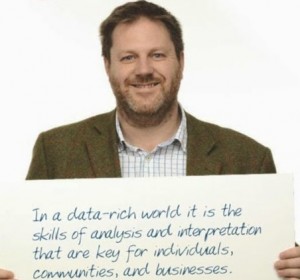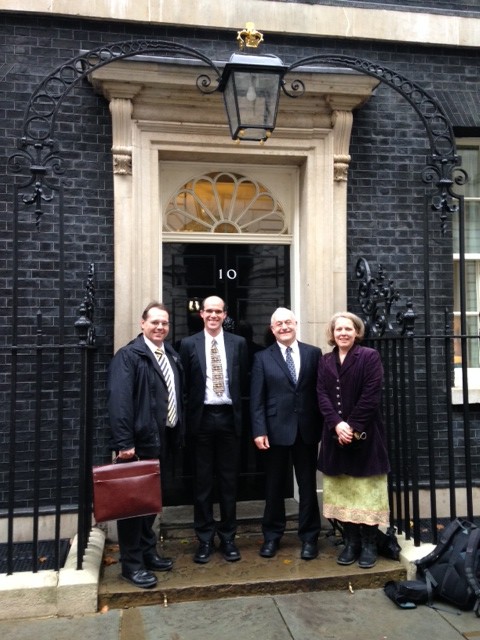In the fourth of our blog series ‘Interactions, Interdisciplinarity, International’, Jenny Hasenfuss reflects on the rapid blend of technologies and innovation placing us in the midst of the fourth Industrial Revolution, and she asks how universities might conceive of three of life’s fundamentals; work, rest and play in this context.
The starting point for this blog is the recent “Future of Work” stimulus event at Newcastle University held in the Urban Sciences building on the Newcastle Helix site close to the city centre. The event was coordinated by Naomi Oosman Watts and the NU Careers Service and hosted by Deputy Vice Chancellor Professor Julie Sanders and featured presentations and provocations from a wide range of speakers.
Work
The U.S. Bureau of Labour Statistics predicts that by 2030 millennials generation will make up 75% of the workforce. This demographic grouping is synonymous with technology, are typically always “connected” and are used to social media and expect flexibility. What can be done to consider education and learning in regard to this? Professor Sugata Mitra ,Newcastle University, gave an absorbing presentation of his Self-Organised Learning Environments and the propensity for groups of children to understand huge questions through self-learning with technology allied with the support and energy of the group. He posited that we need to be ready to consider bold approaches to learning through digital literacy and move towards gathering knowledge ‘just in time’ rather than ‘just in case’.
And what opportunities are presented for employers and for the workplace? Digital technology is having an impact upon business models, institutions, organisations systems and upon processes. Newcastle University Business School David Goldman Visiting Professor Alison Shaw and founder of the North East Futures UTC was compelling in her vision of innovative frameworks for education which must include an interdisciplinary emphasis and embedding of skills. She called for a ‘fluency of ideas’ and recognition of the importance of collaboration in higher education. By reminding the audience that work has social and cultural value as well as economic she set out an exciting agenda for higher education where we need to explore how we prepare for, experience and reward work in society and especially for our students.
Rest
The ‘work’ and ‘rest’ meaning and balance are changing, partly influenced by technology and the constant background hum of social media and round the clock news. And new business arrangements for working such as the “gig economy” and zero hours contracts are blurring lines for home and work.
RAND Europe has researched the importance of sleep for our health (physical and mental) and in turn actually for productivity. Their research in 2016 “Why Sleep Matters: Quantifying the Economic Costs of Insufficient Sleep” Economic modelling of data from five OECD countries (including the UK) found that individuals who sleep fewer than six hours a night on average have a 13 per cent higher mortality risk than people who sleep at least seven hours. This is a stark reminder for individuals and for employers about the importance of rest for so many valuable reasons.
Play
In this digital and networked age how do we conceive of wellbeing and how do we find space for fun and to enjoy ourselves? How do we balance individual activities and those that are collective or communal? What is a ‘good society’? And what role do university staff, academics and students play in being part of and adding to a good society?
By 2030, the consumer class is expected to reach 5 billion people. This means 2 billion more people with increased purchasing power than today. Most of this growth is predicted in Asia: by 2030, China and India together will represent 66% of the global middle-class population and 59% of middle-class consumption. Population and climate effects are presenting water and pollution challenges. How can we best develop and nourish wellbeing of ourselves and others and of the earth’s finite resources in a commercial, often materialistic setting? Can we reconsider our ‘leisure’ time and how we ‘play’ and what can the social sciences and arts and humanities tell us about the value of ‘play’?
Where next?
At the ‘Future of Work’ stimulus event, Deputy Vice Chancellor Professor Sanders encouraged us with a forward looking address drawing on the sincere and hopeful vision of Klaus Schwab, Founder and Executive Chairman of World Economic Forum “We can use the Fourth Industrial Revolution to lift humanity into a new collective and moral consciousness based on a shared sense of destiny”. In our roles in higher education with students, academic colleagues, staff and collaborators from beyond the University, let us go to work on this and be sure to contribute to this new collective.
Jenny Hasenfuss, Newcastle University Institute for Social Renewal
Jenny Hasenfuss is Institute Administrator at Newcastle University Institute for Social Renewal and her role involves supporting societal engagement with research and coordinating strategic projects. An experienced knowledge exchange professional and project manager, Jenny has worked in Higher Education for the past ten years and is passionate about developing impactful societally relevant research






